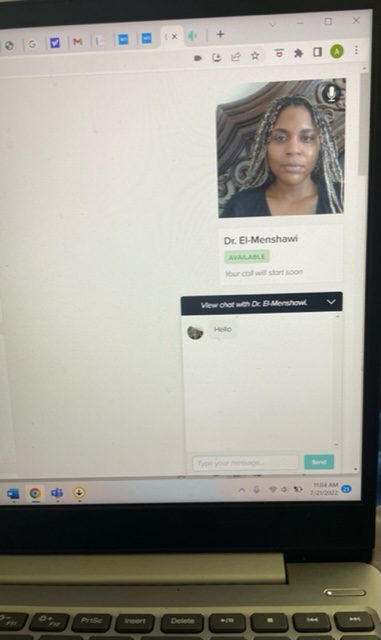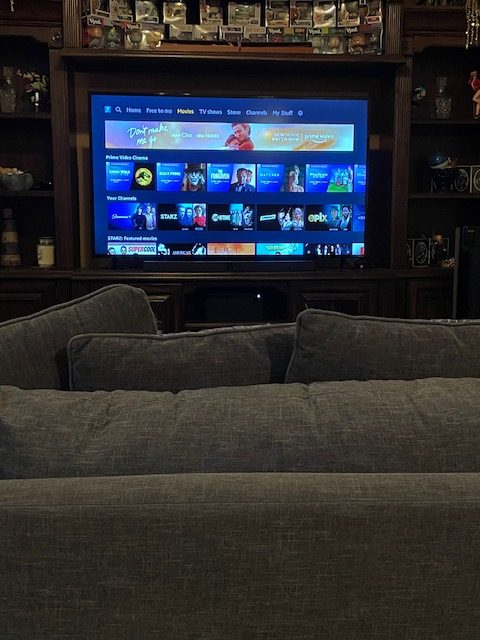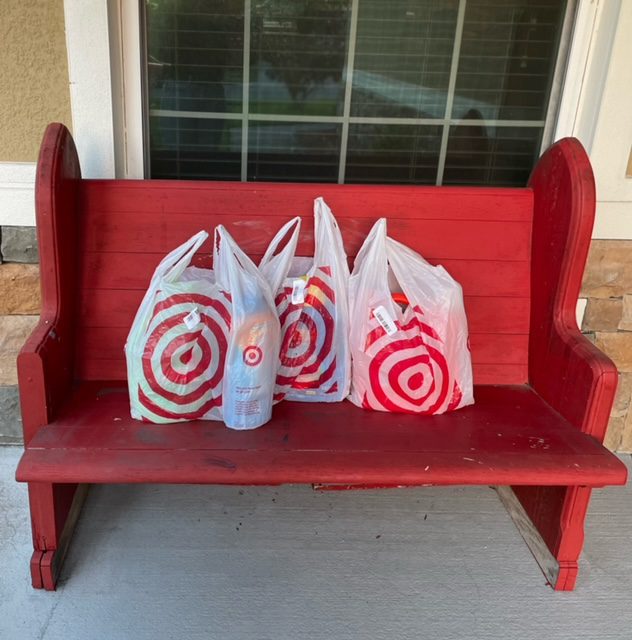By Angella Lamon
It is no secret that many events have occurred over the past few years which may be cause for higher levels of stress and anxiety to be experienced by people. These events include, but are not limited to, rising living costs, the war in Ukraine, frequent public shootings, and COVID-19. The Lockdown in 2020, and subsequent quarantines, introduced many of us to being isolated and to working and taking classes remotely. This became the norm for some and reacclimating to face-to-face classes or working in-office again can induce feelings of unease or fear. These emotions can make it hard to feel safe and enjoy being back outside. In extreme cases, a general fear of leaving home may develop. This fear has a name, it’s called agoraphobia. For UCF students and faculty, there are several resources available to assist in managing these feelings and to help maintain a decent quality of life even while remaining indoors.
Agoraphobia causes people to “avoid situations such as being alone outside of the home; traveling in a car, bus, or airplane; or being in a crowded area,” says The National Institute of Mental Health. The avoidance of public spaces to keep from experiencing an anxiety attack must be experienced for longer than six months to be diagnosed. An estimated 1.3% of adults and 2.4% of adolescents in the U.S. have the phobia, but for sufferers, over 40% are seriously impaired by the disorder. Even for those who are undiagnosed, feelings of unease when heading into public spaces is relatable to many, especially now. For those feeling overwhelmed by the thought of going back to campus with a large number of other students, or fearing for their safety while in public spaces, learning and utilizing appropriate strategies, like early identification of symptoms and access to mental health professionals, are important for successful intervention.
There have been numerous public shootings committed in the past few years. Shootings at Pulse nightclub and Marjory Stoneman Douglas High School here in Florida, Robb Elementary in Texas, and Tops supermarket in New York, collectively claimed the lives of ninety-seven innocent people. Sadly enough, after submitting the first draft of this article seven people were murdered during the Independence Day parade in Highland Park, Illinois. Meanwhile, fear of mass shootings caused stampedes in Washington, D.C., Las Vegas and at Lake Eola.
It’s pretty clear that these violent acts can make leaving home to take care of common errands terrifying for some and being scared to leave home is something with which I am very familiar. 2010, the year my son was born, was definitely a season of change for me. Not only was I a new parent, complete with all the required responsibilities, but I truly came to understand the extent of my mortality. People left for a night out, the grocery store, or a visit to the movie theater and never made it back home. This horrified me. If I died who would love and provide for my son like me? Nobody, of course. A year crippled with fear to leave home followed. I even feared checking my mailbox, afraid a distracted driver might accidentally clip me with their vehicle.
Through acknowledgment of my fears and seeking assistance, including utilizing psychotherapy services, I worked through those fears and was able to continue grocery shopping, participating in outdoor events, and taking classes on campus.
A few simple tips that I used to face my own fears were to make leaving home a necessity. I created a daily to-do list making sure to always have a mandatory reason to have to go outside. If my son and I both had to see the doctor, I made the appointment on separate days. I would often leave necessary items that were running low off my shopping list, ensuring I would have to return to the store on days that I knew I had no other reason to go out.
Unfortunately, over the past couple years some of my anxieties have returned. I returned to college to finish the degree I began years ago, but I did not attend my graduation ceremony from Valencia College before transferring to UCF. I also feel extremely uncomfortable when required to come to UCF’s main campus and I have continued taking virtual courses, even after the campus reopened. After I purchased admission to a recent convention, I found the massive groups of people and the limited available parking to be extremely overwhelming upon my arrival to the Orange County convention center. I was unable to attend the event without a companion. I thought I’d grown passed feelings like these, yet with their return, I feel it is an opportunity to share the various resources which may assist people who feel similarly.
For active UCF students enrolled in at least one on-campus class, health services are provided through Telehealth, offering both assessment and counseling over zoom.
 Counseling and psychological services, or CAPS, offers all currently enrolled UCF students individual counseling, group or couples counseling, and crisis counseling. CAPS offers mental health counseling through video conferencing using Zoom provided through the Therapist Assisted Online program. For people who are not currently enrolled at UCF, or who are enrolled in UCF Online degree programs, virtual counseling services are available through unaffiliated agencies including Talkspace, BetterHelp, and Cerebral which offer online and mobile counseling at affordable costs. The ability to speak to a licensed therapist from my home has been very useful for me recently.
Counseling and psychological services, or CAPS, offers all currently enrolled UCF students individual counseling, group or couples counseling, and crisis counseling. CAPS offers mental health counseling through video conferencing using Zoom provided through the Therapist Assisted Online program. For people who are not currently enrolled at UCF, or who are enrolled in UCF Online degree programs, virtual counseling services are available through unaffiliated agencies including Talkspace, BetterHelp, and Cerebral which offer online and mobile counseling at affordable costs. The ability to speak to a licensed therapist from my home has been very useful for me recently.
While the development of agoraphobia can make life more difficult, we can be grateful for the resources and technological advancements that are now available which allow homebound individuals’ qualities of life to not be drastically diminished. For those who are not yet ready to head back out, Door Dash and UberEATS deliver food from local restaurants along with other household and convenience store goods. Grocery stores, including Publix, and even the Orange County Public Library offer home  delivery services. Zoom has revolutionized video conferencing allowing for multiple organizations to provide remote services of various sorts. These services include fitness coaching, psychotherapy sessions, and Alcoholics Anonymous meetings. Education and personal income need not be hindered when online classes and remote careers are accessible. And there are countless video streaming services for entertainment, with some new theatrical releases being available on-demand same day, bringing the theater to the safety of home
delivery services. Zoom has revolutionized video conferencing allowing for multiple organizations to provide remote services of various sorts. These services include fitness coaching, psychotherapy sessions, and Alcoholics Anonymous meetings. Education and personal income need not be hindered when online classes and remote careers are accessible. And there are countless video streaming services for entertainment, with some new theatrical releases being available on-demand same day, bringing the theater to the safety of home
Technology, combined with the intense effort to manage the spread of COVID-19, created many services for the homebound. But as time progresses, the vaccinated population continues to rise, the death tolls continue to drop, and more people are developing the antibodies to fight off the newer strains, people are becoming more comfortable living with the existence of Covid-19. This is wonderful news, but we are beginning to witness some services for the homebound tapering off.
While COVID-19 fear is diminishing there are still people who do not feel safe outside for other reasons.
Also, I believe that it is extremely important that people seek help for their mental health if they feel it is affecting their ability to function at their highest potential and be able to utilize virtual resources whenever needed. I would also like to take a moment to acknowledge the fact that there are other people, including the elderly, disabled, and those with transportation restrictions who also benefit from virtual and home delivery services. I believe that it is of great importance that we maintain the availability for the services to be used by any who require them.
So, until we are all ready to go back outside, we can be grateful for the resources we have to keep us comfortable in our safe spaces and hope they remain.
Mental Health Resources
UCF Counseling and Psychological Services Phone: (407) 823-2811 Location: COUNSELING CENTER, ROOM 101





